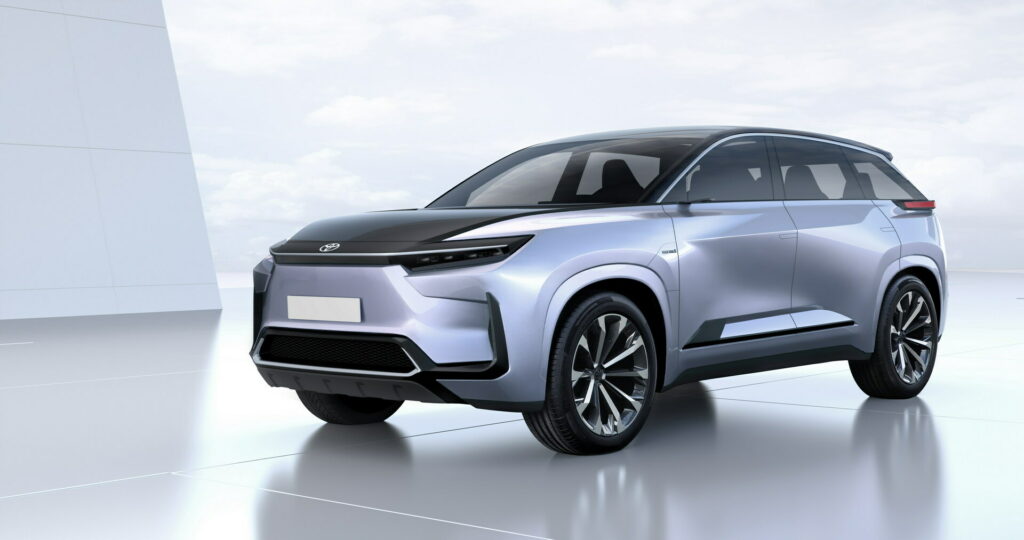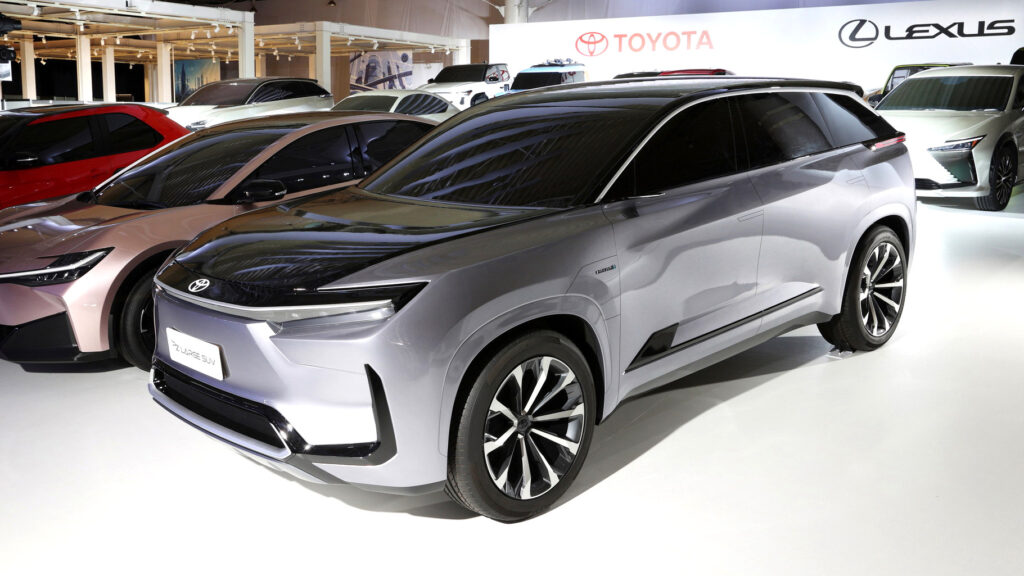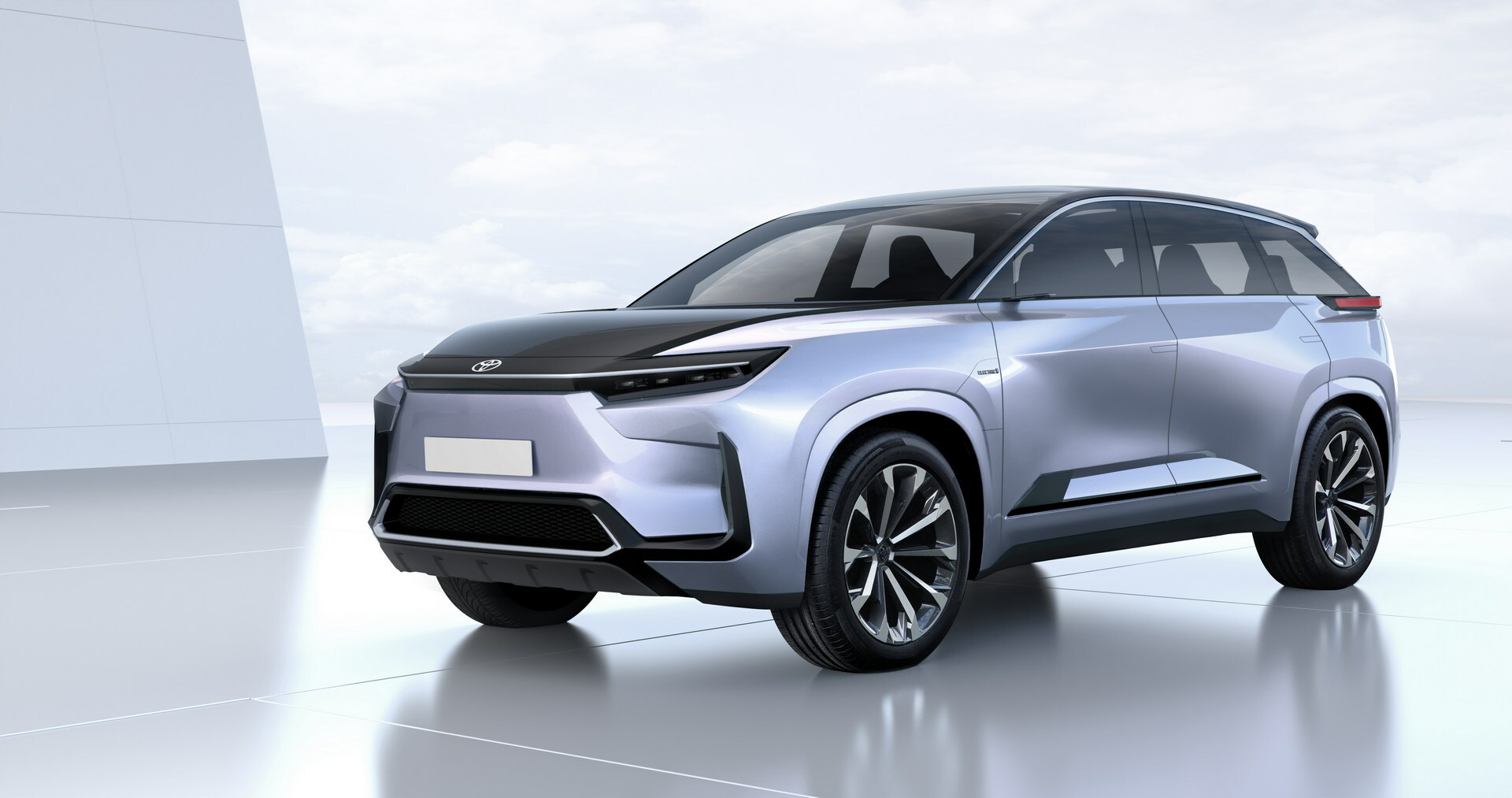Starting in 2025, Toyota is going to build a new all-electric three-row SUV in its Kentucky production facility. That same year it’s going to begin production of the batteries for its first U.S.-made EV in its North Carolina plant. That battery production facility will receive an additional $2.1 billion investment as Toyota presses on toward carbon neutrality.
“We are committed to reducing carbon emissions as much as possible and as soon as possible,” said Ted Ogawa, president and chief executive officer, Toyota Motor North America. “To achieve this goal, customers must have access to a portfolio of options that meet their needs now and in the future.”
“It is exciting to see our largest U.S. plant, Toyota Kentucky, and our newest plant, Toyota North Carolina, drive us into the future together with BEV and battery production for our expanding electrified lineup,” he continued.
More: Toyota Unveils New Electrification Strategy And Plans For 10 Next-Gen EVs By 2026

We’ve been aware of the upcoming three-row SUV from Toyota for some time now, as the company teased a concept model tentatively called the “bZ Large SUV” during a media briefing on battery EV strategies in December 2021. Furthermore, Toyota confirmed that the vehicle would be manufactured in the United States.
However, until now, the specific location within the USA had not been disclosed. Selecting Kentucky as the production site makes sense for the brand since it houses the largest Toyota production facility globally. Presently, this facility produces models such as the Camry, Camry Hybrid, and RAV4 Hybrid.
The North Carolina facility tapped for battery building is going to be Toyota’s hub for development and production. When it comes online in 2025, it’ll have six battery production lines including four for hybrid electric vehicles and two more for battery electric vehicles. The news means that in total, Toyota will invest $5.9 billion in the facility.
The moves also lay the groundwork for Toyota to sell a vehicle that would qualify for the Inflation Reduction Act’s full $7,500 tax credit. As the rules sit today, qualification is dependent on how much of a vehicle and its battery components are made in the USA. Building both a vehicle and the battery for that vehicle in the States will take much of the guesswork out of whether or not this future SUV will qualify.












